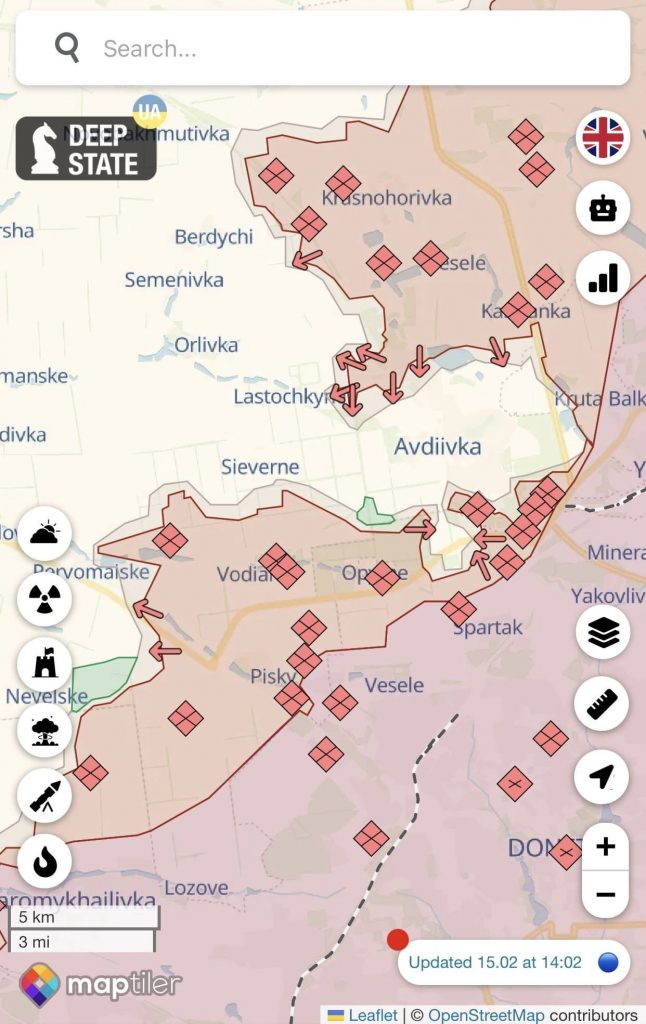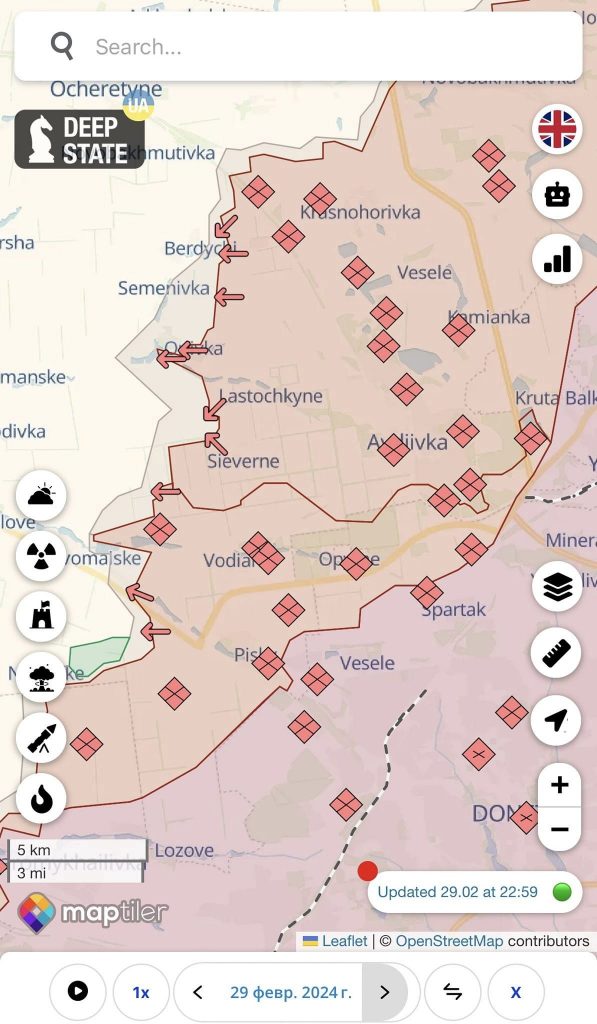The situation in Ukraine is becoming increasingly difficult. The country is experiencing new territorial losses.
This critical state of affairs is largely due to severe shortages of ammunition and weapons, exacerbated by the failure of the Western world to fulfil its promises in providing qualitative and quantitative military assistance when needed.
Despite assurances from Western allies for adequately arming Ukraine, there is a widened gap between promised support and actual provided assistance.
Consequently, this imbalance has placed Ukrainian forces in a precarious situation as they courageously attempt to maintain their positions against an adversary that is not bound by the same limitations, and who has shifted to a war economy in its most authoritarian form.


The shortage of military supplies, especially artillery shells and modern weapons, seriously affects our front line and our capacities to surpass the enemy and its war crimes.
Ukrainian forces, known for their resilience and tactical expertise, are not fully able at this moment to conduct defensive operations and launch counterattacks due to this inconstant flow of ammunition. It not only has immediate tactical implications, but also a profound strategic impact on the war as a whole, seriously affecting long-term prospects for peace and stability in the region.
The urgency with which these promises of military aid must be fulfilled cannot be overstated.
The gap in support not only undermines Ukraine’s defense efforts, but also puts into question and jeopardises the reliability and commitment of Western allies. This scenario calls for a critical reassessment for the distribution of military aid and a greater commitment from the international community to support Ukraine at this critical time.
Concretely, we have to move from the narratives of “Support as long as it takes” to the narrative of “Do everything for Ukraine’s victory now” and for Europeans to “Make Ukrainian victory their own!”
The unfolding situation, marked by recent territorial setbacks linked to insufficient military support, highlights the consequences of inaction and underscores the critical importance of international solidarity against this aggression, not known to the world for years. This is a strong appeal to the free world community for ensuring Ukraine that the country receives all necessary resources for self-defence, support of regional stability, and compliance with the principles of national sovereignty and international law.
In addition, the strategic location of the main European institutions and the headquarters of NATO in Brussels emphasise the importance of these places as a geopolitical centre. Vladimir Putin’s apparent willingness to target these “decision-making centers,” if deemed necessary in his obsession to restore his illusion of an empire, is part of a broader narrative that sees the war in Ukraine as a direct confrontation between Russia and the West. This is a view echoed in China, Africa, Latin America, Turkey, and some Arab countries.
Instead, the common opinion among Europeans qualifies the war primarily as Russian aggression against Ukraine. This perception emphasises the indispensable and ubiquitous role of Ukraine as a “shield” of Europe, protecting the Western way of life and freedom. The potential fall of this shield will expose Europe to direct threats, emphasising the need for European countries to reassess their support for Ukraine.
Therefore, the situation not only highlights Ukraine’s vital role in the current conflict, but also prompts a reassessment of European collective security strategies and the effectiveness of defense agreements as NATO’s Article 5. The relative inaction and lack of understanding of the conflict’s proximity to Europe, exacerbated by cyberattacks, disinformation and direct attacks, indicates a significant oversight.
Considering all pertinent elements, including the gap between public declarations and tangible measures, I urge our leaders to reflect on the following: Is there an underlying indecisiveness or a shortfall in strategic vision guiding your actions? Do our current endeavors, or their absence, signal a surrender of Ukraine to Russian forces? Does the confidence in our security stand on shaky ground, reminiscent of the debunked claims regarding Russia’s military prowess, claims that faced global skepticism in 2022? Are the proclaimed strengths of our defence strategies and capabilities less substantial than believed, thus hindering our ability to extend the necessary aid due to genuine shortfalls? Might this situation be attributed to a blend of these issues? This presents a somber and concerning picture, urging an immediate and rigorous reassessment and action from the West, lest we risk compromising our liberties in the near future.
The ongoing struggle in Ukraine, characterised by territorial losses and casualties, is partly due to the indecisiveness of the European leadership and the failure to adequately mobilise public support for Ukraine. This needs to change. It is our categorical moral obligation. There is no alternative. We can only win this war… for us, for you, for Europe!
Marta Barandiy Ph.D.






 UA
UA FR
FR DE
DE




